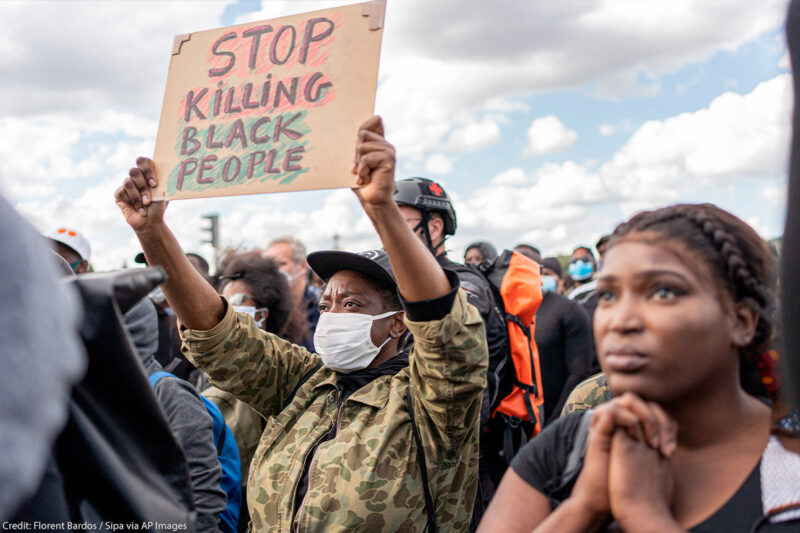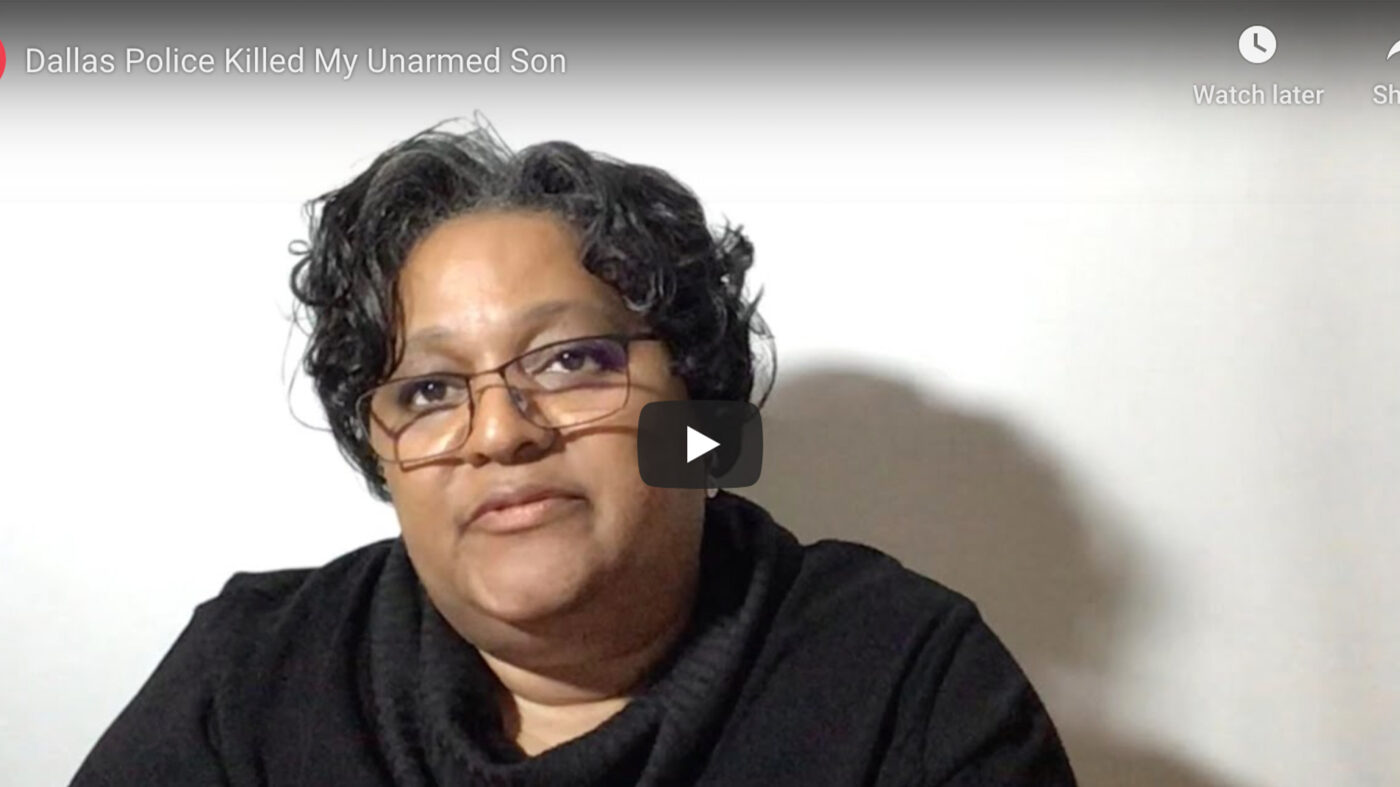Dallas Police Killed My Unarmed Son. Their Brutality is a Global Problem.


In 2013, I founded Mothers Against Police Brutality (MAPB) after my only son Clinton Allen was extra-judicially murdered by a Dallas police officer. Clinton was unarmed. He was just 25-years-old, and had grown from being a delightful and curious child into an avid reader who dreamed of becoming the fifth generation of our family to be a rancher. His dreams were extinguished with his life. He should be alive today.
Ěý
The officer shot my son seven times, once at close range in the back. Clinton’s death at the hands of police is far from uncommon. Rather, it is something almost commonplace in communities of color, and the public outcry against police violence makes it clear that the nation is waking up to that tragic reality more and more.

Each year, thousands of people are killed by U.S. law enforcement. For the most part, no one says their names except for their own family and friends. Every so often a handful of these thousands who have been murdered are cherry-picked as being worthy of attention for a variety of reasons: the killing was caught on compelling video; it’s particularly vicious; or because the victim is especially sympathetic.
The reality is that all people killed by law enforcement should have their names heard, and their stories told. Outside of the handful of cases that the public is aware of, the consistent loss of life at the hands of police is almost invisible. The lack of extensive media coverage of all police killings spreads the illusion worldwide that police brutality in the U.S. is an anomaly. We know that instead, it is the rule, and a source of fear, death, and anguish for communities of color in general and Black people in particular.
Ěý
A common retort is that we are dealing with “a few bad apples” who happen to be spoiling the good name of the bunch. We are not. We are dealing with a police culture that is an orchard of poisoned trees, diseased at the root, bearing a relentless, deadly fruit which tears apart Black families like my own.Ěý
Ěý
For each one of us who fights for our rights and lives, there is a law enforcement organization pushing back. Unjust laws and powerful police unions protect U.S. police officers. The number of police officers who kill Black people who actually face a jury is statistically insignificant. Furthermore, district attorneys are generally unwilling to prosecute; they are often too cozy with police institutions they count on to win convictions; and when campaigning for office, they seek the endorsement and funds of the local police union.
Ěý
Finally, police killings are not always independently investigated — more often than not, it is police departments that investigate themselves. In the first hours after an officer kills one of us, they set the narrative and tone, which is typically picked up by the county prosecutor. The fact remains that in the U.S., a police officer can violate your human rights, even kill you, and 99 times out of 100, nothing will happen. No charges, no indictment, no trial, no conviction and often not even dismissal from the police force. Put simply, the problem of police brutality in America is systemic, racist, and must be addressed as such.
Ěý
These factors have coalesced and worsened over time to enshrine a very dangerous police culture in the U.S. It is dangerous for people of color, particularly Black men and boys. But it is also a great danger to the future of democracy in the U.S. When police abuse their power and use their authority unjustly — which, after all, is the authority given to them by the public, by us — they break the social contract and leave it bleeding in the street.
Ěý
They leave us bleeding in the street.
Ěý
The people of every nation on this earth must summon the courage to resist police brutality, not only in the U.S., but in every country where the fatal results of an original betrayal of public trust exists. We need many specific policy changes, starting with ending qualified immunity, and proceed from there to setting a national standard for the use of deadly force that complies with international law.
Ěý
Reducing funding to police departments and reinvesting those funds into Black and Brown communities are necessary steps to prevent further harm and to ensure that all people can live without fear of police violence.
Ěý
Incredibly, today in America every law enforcement agency can claim its own standard for when they can kill a person as long as the officer says that he felt that “his life was in danger.” Unarmed suspect, shot in the back, driving away, running away? “Fearing for his life, the officer fired seven shots, killing the suspect.” No charges, no indictment, no trial, no conviction. It could only be more unbelievable if it weren’t true, but this is the reality of police brutality in the U.S.
Ěý
On June 19, the United Nations Human Rights Council adopted by consensus a watered-down calling on the high commissioner to prepare a report on systemic racism and violations of international human rights law against Black people, to contribute to accountability and redress for victims. I very much hope that the report will be the first step in a series of meaningful international accountability measures to fully and independently investigate police killings in the U.S., and to provide effective remedy and compensation to victims and their families.
Ěý
But beyond any specific policy change, we need people worldwide to demand an end to the routine extra-judicial killing of Black people by the police in America. In the name of my son, Clinton, and for all of our families: this must stop.
This article is based on Collette Flanagan’s statement to the United Nations Human Rights Council.


